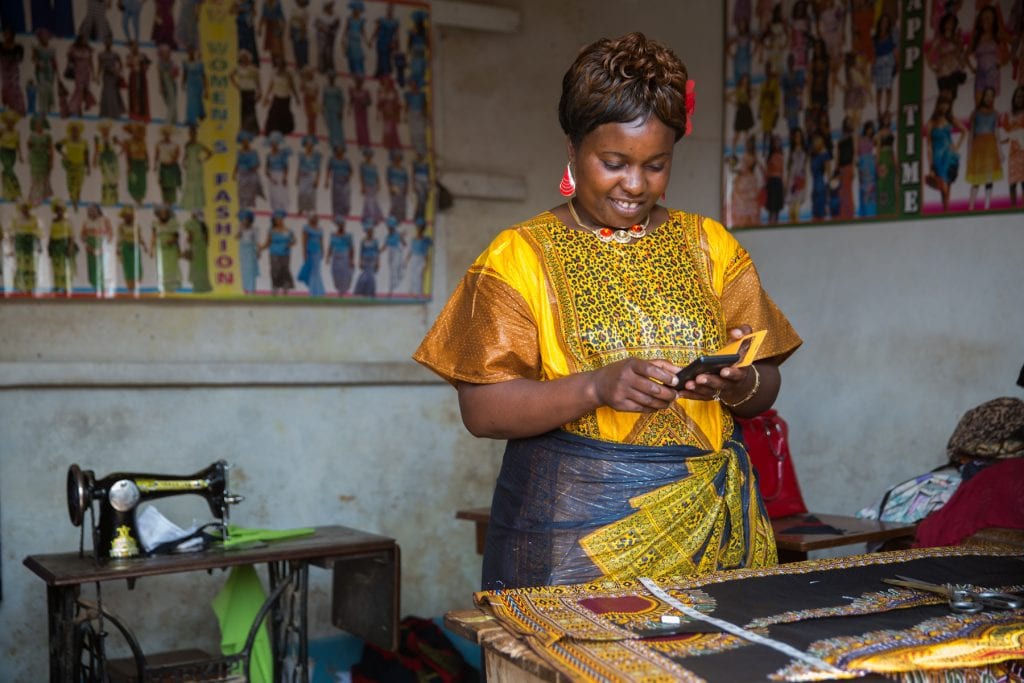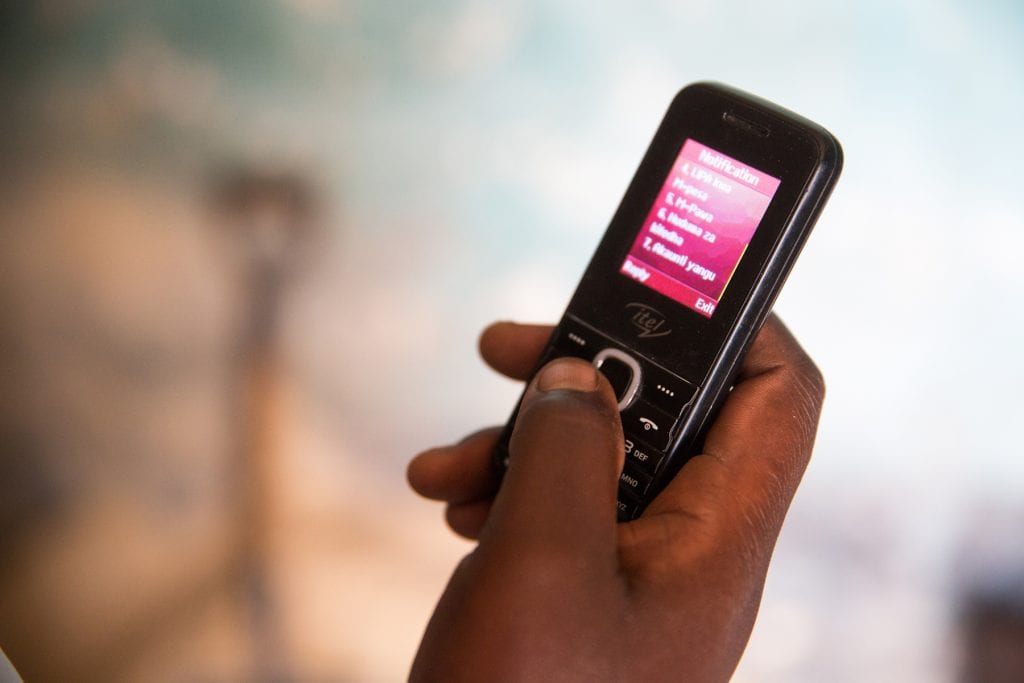5 Ways Technology is Fighting Global Poverty
TechnoServe integrates technology into many of our programs to reach more people and scale our impact around the world. Today we are sharing five things you might not know about how technology is fighting poverty.

1. Satellites and drones can provide essential agronomy information for farmers, improving yields and boosting incomes.
Smallholder farmers in sub-Saharan Africa often suffer from low agricultural yields and do not have access to the same technologies as farmers in other regions. Geospatial technology, including satellites and drones, can provide the in-depth monitoring services needed to apply “precision agriculture” methodologies to farms, increasing yields and reducing spending on inputs.
Precision agriculture uses remote sensing data (images and information taken from satellites or drones) and machine learning to identify the precise quantities of water, fertilizer, pesticides, and other inputs that should be applied to crops, as well as the right timing.
Precision agriculture is becoming mainstream for row crops, such as corn and soy, grown in the developed world. TechnoServe is working on practical applications of satellite and drone data for tree crops, such as cashew and coffee, to help determine production yields and target on-the-ground training efforts for smallholder farmers.
2. Successful technology doesn’t just solve problems; it can also promote inclusive development for traditionally excluded populations.
Technology can be a powerful tool for improving lives in developing countries, but too often technology projects fail because there is a lack of understanding about local markets and user needs. In TechnoServe’s work, we have identified three key factors for making technology more inclusive.
First, we need to set concrete targets for inclusivity and measure against them. At TechnoServe, for example, we have established a goal that women should make up at least 40% of the farmers and entrepreneurs in our programs. Second, we need to prioritize working with local partners within a local ecosystem. Building local capacity is critical if a technology is going to be used successfully after the close of a program.
Finally, we need to work with end users starting during the design phase. Some of the biggest failures incorporating technology in development contexts result from solutions that do not fit the needs and capabilities of the target users. Fortunately, there is an increasing emphasis on engaging local communities in testing, piloting, and rolling out new technological solutions.

3. Entrepreneurs in remote and difficult to access locations can use e-learning platforms to access training and business advisory services.
Online learning platforms can provide entrepreneurs with the tools, information, and resources they need to run successful businesses without having to send in-person trainers. Technology is only part of the solution, however.
In our experience educating over 40,000 entrepreneurs annually, TechnoServe has found that even when technology is used as a part of an overall training solution, it is critical to build strong entrepreneurial communities that foster trust, engage entrepreneurs in the training process, and create mutual accountability among entrepreneurs. Many of TechnoServe’s programs use a combination of in-person and online training, which improves cost-effectiveness and allows us to reach more entrepreneurs, regardless of where they live.
4. In low-trust environments, blockchain or digital ledger technology is a potential solution to store sensitive information and process transactions securely.
Smart contracts based on blockchain / DLT can be useful tools in developing countries because they serve as immutable, distributed (no single point of failure), digital ledgers for transactions and contract information. Blockchain can also improve the security of digital payments.
However, many use-cases are not yet proven. To evaluate the potential of blockchain as a solution for building trusted supply chain systems in low trust areas, TechnoServe has been testing digital payment solutions using blockchain with AB InBev in Uganda for sorghum production (using BanQu), and with Solvay in India for guar seed.
5. Using cell phones and mobile money makes it easier for people in developing countries to interact with the formal sector.
Mobile technology has great potential to increase incomes for small-scale farmers and entrepreneurs, particularly by connecting them to better markets. Mobile supply chain platforms can help companies conduct business with thousands of farmers across a wide area, while providing them with agronomic advice and other information that can improve the quality of their crops. Many applications also provide market pricing information, helping farmers sell their crops for higher prices, improving their incomes and their lives.
Many of these features were present in the Connected Farmer Alliance program that TechnoServe implemented with Vodafone and other partners, connecting 500,000 smallholder farmers with agricultural buyers through a new mobile system facilitating the transfer of payments and data.
Learn how TechnoServe uses technology to solve pressing development challenges.




